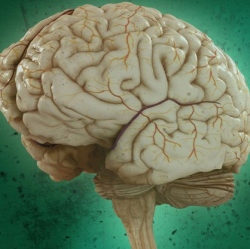
Researchers have made an Alzheimer’s breakthrough that may result in world’s first dementia vaccine. Developed by Australian and US scientists, this vaccine may not only prevent but also reverse early stages of Alzheimer’s, the most common form of dementia.
The Alzheimer’s vaccine may be tested on humans within the next two to three years with US Government funding. Scientists from Flinders University and America’s Institute of Molecular Medicine and University of California developed the vaccine by targeting proteins in the brain that block neurons.
The formula targets tau proteins and abnormal beta-amyloid that cause Alzheimer’s. The scientists are confident that the vaccine would eventually be used as preventative vaccine. According to Flinders University medicine professor Nikolai Petrovsky, the proteins must be removed from the brain as Alzheimer’s, and dementia sufferers have lots of these broken down proteins inside.
The World Health Organisation (WHO) has projected a US$600 billion (AU$790 billion) cost per year as total global societal cost of dementia-related illnesses and care. The WHO also noted there are 7.7 million new cases every year.
The first protein “to go wrong” was a-beta. However, targeting the second protein tau actually helped reverse the progression. Targeting the tau protein with the vaccine you can actually reverse the disease even once it has developed
Nature Scientific Reports – Alzheimer’s disease AdvaxCpG- adjuvanted MultiTEP-based dual and single vaccines induce high-titer antibodies against various forms of tau and Aβ pathological molecules
Although β-amyloid (Aβ) may be the primary driver of Alzheimer’s disease (AD) pathology, accumulation of pathological tau correlates with dementia in AD patients. Thus, the prevention/inhibition of AD may require vaccine/s targeting Aβ and tau simultaneously or sequentially.
Since high antibody titers are required for AD vaccine efficacy, we have decided to generate vaccines, targeting Aβ (AV-1959R), Tau (AV-1980R) or Aβ/tau (AV-1953R) B cell epitopes, based on immunogenic MultiTEP platform and evaluate the immunogenicity of these vaccines formulated with AdvaxCpG, delta inulin, Alhydrogel®, Montanide-ISA51, Montanide-ISA720, MPLA-SM pharmaceutical grade adjuvants. Formulation of AV-1959R in AdvaxCpG induced the highest cellular and humoral immune responses in mice.
The dual-epitope vaccine, AV-1953R, or the combination of AV-1959R and AV-1980R vaccines formulated with AdvaxCpG induced robust antibody responses against various forms of both, Aβ and tau pathological molecules. While anti-Aβ antibody titers after AV-1953R immunization were similar to that in mice vaccinated with AV-1959R or AV-1959R/AV-1980R combination, anti-tau titers were significantly lower after AV-1953R injection when compared to the AV-1980R or AV-1959R/AV-1980R.
In silico 3D-modeling provided insight into the differences in immunogenicity of these vaccine constructs. In sum, AV-1959R and AV-1980R formulated with AdvaxCpG adjuvant were identified as promising immunogenic vaccines for ongoing pre-clinical assessment and future human clinical trials.
Aβ-mediated plaque formation is thought to be the primary event in Alzheimer’s disease (AD) pathogenesis. Later, AD pathology becomes self-propagating with less dependence on Aβ and greater involvement of other proteins such as tau. The temporal relationship of misfolded proteins in AD pathogenesis may have relevance to AD vaccine strategies.
Hence, vaccines targeting Aβ only may be effective prior to or in the very early stages of AD pathogenesis, whereas vaccines targeting tau may remain effective in latter stages of AD. Therefore, the most effective strategy may be to develop an immunogenic vaccine or vaccines targeting both Aβ and tau, such that the same vaccine or the combination of vaccines would then be effective across the entire spectra of AD progression.
